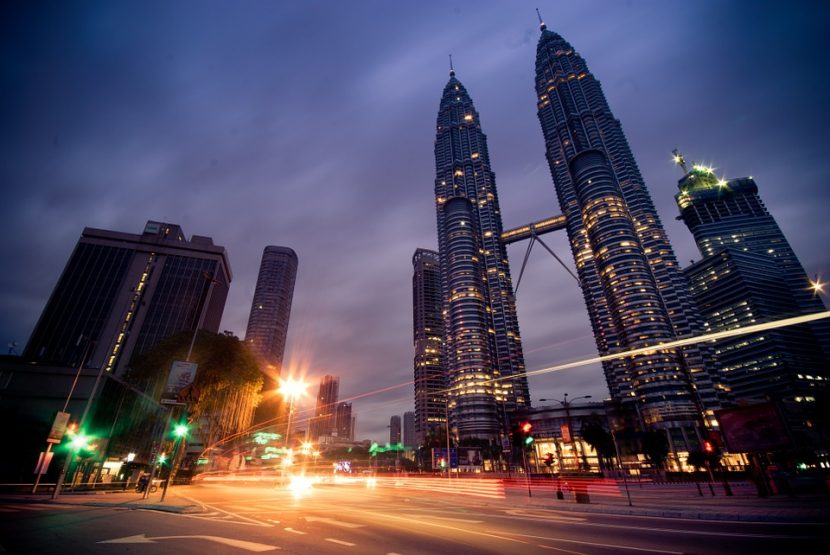EDGEPROP. 23RD AUGUST: Participants are required to analyse the site and come up with innovative ideas that will contribute to placemaking and enhancing community engagement while preserving the identity, culture and heritage of the area.
The younger generation now is the dwellers of our cities in the future. Hence, the Young People’s Lab (YPLab) programme has created a platform for them to share their ideas and thoughts on what constitutes a sustainable and resilient city.
“This programme is all about reaching out to the young people and giving them the opportunity to express their ideas on a sustainable environment. We are hoping to get their perspectives on practical solutions that will benefit the communities and the precinct as a whole,” PNB Merdeka Ventures (PNBMV) chief executive officer Tengku Datuk Abdul Aziz Tengku Mahmud told Edgeprop.my after his presentation during the programme launch on Saturday (Aug 19). PNBMV is the owner and builder of the Merdeka 118 precinct in the heart of the country’s capital city.
Abdul Aziz said programmes such as YPLab are important in creating a more inclusive platform towards planning and preparing for a rapidly changing climate.
City planning today needs to consider the global challenges of climate change and sustainability while creating conducive environments for the society to progress without leaving anyone behind. Additionally, urban spaces must preserve the DNA of a precinct and prioritise efficient resource use.
The programme is open to students, recent graduates and young professionals below the age of 40 in the field of architecture, interior design, town planning and urban planning.
YPLab was mooted in 2015 by young professionals from the Malaysian Institute of Planners (MIP), Institute of Landscape Architects Malaysia (ILAM), Real Estate and Housing Developers’ Association Malaysia (REHDA), Malaysian Institute of Interior Designers (MIID) and Malaysian Institute of Architects (PAM).
More than just a forum for ideas
One of the key requirements of the programme is to encourage the participants to understand the challenges faced by the community as the city changes and adapts to the rapid development.


The programme encompasses the areas of Kampung Attap, and Jalan Hang Tuah and Kenanga, which are the primary nodes surrounding the Merdeka 118 development. Participants are required to analyse the site and come up with innovative ideas that will contribute to placemaking and enhancing community engagement while preserving the identity, culture and heritage of the area.
Some key areas that will come under scrutiny include the improvement in accessibility, connectivity and social interaction to make Kuala Lumpur a sustainable, diverse city.
Think City Associate of Urban Mechanics, Elisa Hanim, explained that the YPLab initiative is one avenue to get fresh perspectives and innovative ideas that can reshape urban spaces to be more relevant and dynamic. She opined that by involving the young people in the decision-making process, the urban development exercise will ensure that their needs and aspirations are considered, creating cities that cater to a wider demographic. Furthermore, their involvement instils a sense of ownership and responsibility, and helps foster a deeper connection to the city.
“We are hoping they will come up with some ideas that instil a strong sense of community and inclusivity, where people from all walks of life feel valued and connected. The city should also foster innovation, encourage creativity and provide opportunities for growth, while maintaining its unique cultural identity,” Elisa said on the expectations from the project proposal.
Think City, a strategic urban policy adviser established to make KL a more resilient, sustainable and liveable city, and PNBMV are supporting partners in the YPLab project this year, while EdgeProp.my is the media partner.
The participants are required to propose physical and non-physical creative solutions that would benefit the community in creating resilience to the changes in their environment. The areas covered are divided into two zones – Zone A – Kampung Attap area, and Zone B – Jalan Hang Tuah and Kenanga. The participants must include proposals for the walkway from Hang Tuah Monorail station to the Textile Museum for Zone A and the public open area near Perumahan Awam Sri Sarawak for Zone B.
Built environment can foster mental well-being
According to YPLab programme convener Wan Siti Hajar Omar, from PAM, the main organiser this year, the requirement to include the above areas is to ensure the needs of the community are met.
While local authorities may sometimes lack immediate responsiveness to environmental shifts, YPLab sheds light on the potential challenges that communities may encounter. By exposing these challenges, the programme sparks awareness and encourages a more proactive approach to addressing them.
She said YPLab recognises the growing link between the built environment and mental well-being. The initiative seeks to bridge this gap by focusing on community programmes that reduce dependency on technology and foster meaningful connections among neighbours and society.
Siti Hajar, who is also an architect attached to Perunding Alam Bina, noted that the resilience of cities emanates from their people, emphasising the need to connect with grassroot communities and understand their needs for a contented existence.
“Placemaking is a key mechanism in this endeavour. Revitalising spaces to ignite human interaction will help alleviate mental health issues that can arise in an era dominated by technology,” she highlighted.


